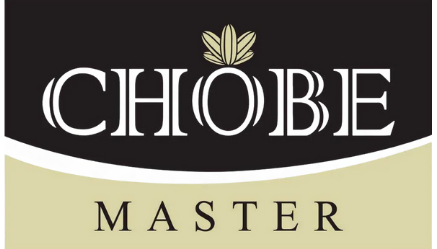
Why Babies Need to Start Solid Foods at 6 Months
Starting solid foods is a significant milestone in a baby's life. It's a big step from exclusive breast milk or formula feeding to exploring a world of new tastes and textures. But why is it recommended to start this journey at six months? Let's delve into the reasons behind this timeline and explore the benefits it offers to your baby's growth and development.
The Transition from Milk to Solids
For the first six months of life, breast milk or formula provides all the necessary nutrients for a baby's growth. However, as babies grow, their nutritional needs expand beyond what milk alone can offer. This is where solid foods come into play. The introduction of solids is not just about nutrition; it's also a developmental milestone that sets the stage for future eating habits.
The Importance of Timing in Starting Solids
The six-month mark is crucial because it aligns with several developmental milestones that indicate a baby's readiness for solids. Introducing solids too early can pose risks, such as digestive issues and an increased chance of choking. Conversely, delaying solids beyond six months may not meet the growing nutritional needs, particularly for nutrients like iron.
Overview of Nutritional Needs at Six Months
At around six months, a baby's iron stores, built up during pregnancy, begin to deplete. While breast milk or formula provides some iron, it may not be sufficient. Introducing iron-rich foods, like fortified cereals and pureed meats, becomes essential. Additionally, solids offer other vital nutrients, including vitamins, minerals, and healthy fats necessary for development.
The Developmental Readiness for Solids
Physical Signs of Readiness
Before diving into the world of solids, it's important to ensure your baby is physically ready. Key indicators include:
- Sitting up without support: This stability helps babies swallow food safely.
- Loss of tongue-thrust reflex: Babies stop pushing food out with their tongues, a sign they're ready to eat.
- Interest in food: If your baby reaches for your plate or watches you eat with curiosity, they're likely ready for solids.
Cognitive and Social Cues
Babies also exhibit cognitive and social readiness. They might open their mouths for a spoon or show interest in the eating behaviors of others. These signs suggest that your baby is eager to explore new textures and flavors.
Nutritional Benefits of Introducing Solids at Six Months
Iron Requirements
Iron is a critical nutrient, especially for brain development. By six months, a baby's iron reserves are dwindling. Introducing iron-rich foods, such as pureed meats, lentils, and iron-fortified cereals, helps replenish these stores and supports healthy growth.
Expanding Nutritional Variety
Beyond iron, solids introduce a variety of nutrients that are not present in sufficient quantities in breast milk or formula alone. These include essential vitamins, minerals, and healthy fats, which are crucial for the baby's overall development.
Impact on Growth and Development
Supporting Physical Growth
As babies grow, their caloric needs increase. Solids provide the extra calories necessary for physical growth, supporting the development of muscles and bones. Foods rich in calcium and vitamin D, for example, are vital for bone strength.
Cognitive Development
The brain grows rapidly in the first year, and nutrients like omega-3 fatty acids, iron, and zinc play pivotal roles in this process. Introducing a diverse diet supports cognitive development and encourages babies to explore and learn.
The Role of Solids in Developing Eating Skills
Oral Motor Skills
Eating solids helps babies develop oral motor skills, such as chewing and swallowing. Starting with purees and gradually moving to mashed foods and finger foods supports this skill development.
Hand Eye Coordination and Fine Motor Skills
Self-feeding is an important developmental milestone. As babies grasp food and bring it to their mouths, they enhance their hand-eye coordination and fine motor skills. Introducing a variety of textures and sizes helps them learn these skills.
Preventing Food Allergies
Early Exposure and Immune System Training
Current research suggests that early exposure to potential allergens, such as peanuts and eggs, may help prevent food allergies. Introducing these foods around six months, in small and controlled amounts, can train the immune system to tolerate them.
Understanding Food Allergies in Infants
It's crucial to monitor for signs of allergic reactions, such as rashes, vomiting, or difficulty breathing. Knowing what to watch for and having a plan to manage allergies is essential for safety.
Building Healthy Eating Habits
Establishing a Balanced Diet
Starting solids is an opportunity to introduce a wide variety of food groups. Offering fruits, vegetables, grains, and proteins helps establish a balanced diet from an early age, promoting healthy eating habits.
Family Mealtime Dynamics
Sharing meals as a family can positively influence a baby's eating habits. Babies learn by watching others, so seeing parents and siblings enjoy a variety of healthy foods can encourage them to try new things.
Common Challenges and Concerns
Food Refusal and Picky Eating
It's common for babies to refuse new foods or be picky eaters. Patience is key. Repeated exposure to new foods, without pressure, can gradually increase acceptance. Offering a variety of options can also help.
Safety Concerns
Choking is a major concern when introducing solids. Always supervise your baby while eating, offer age-appropriate foods, and avoid common choking hazards like whole grapes or nuts. Proper food preparation and hygiene are also essential to ensure safety.
Conclusion
Starting solid foods at six months is a critical step in a baby's growth and development. It provides essential nutrients, supports physical and cognitive development, and helps establish healthy eating habits. By understanding the signs of readiness and introducing a variety of foods, parents can support their baby's journey into the world of solid foods with confidence and joy.

